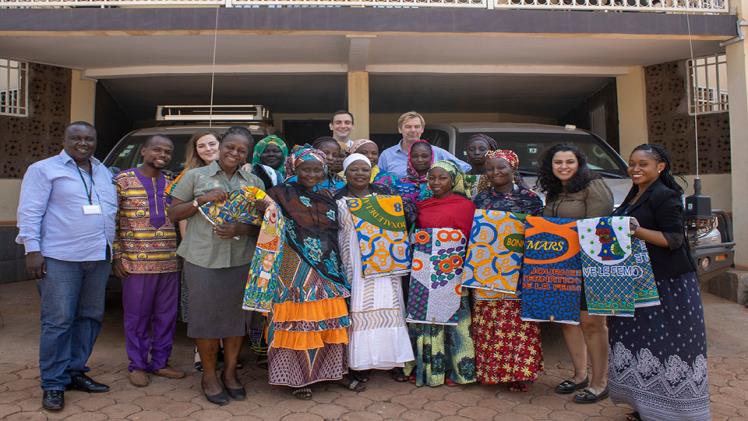The Better Outcomes through Linked Data (BOLD) programme aims to improve services for people with complex needs. For example, this could be someone who experiences homelessness, addiction, and is a victim of crime. These vulnerabilities overlap and cannot be solved by dealing with each factor separately. The experience of someone who is homeless with a substance use disorder will be different from someone experiencing either of these separately. There will be different barriers for them getting addiction treatment and housing.
Who are People with Complex Needs?
People with complex needs are those who have multiple vulnerabilities. In the case of the BOLD programme, those vulnerabilities include people who are:
- Homeless
- Addicted to drugs or alcohol
- Prisoners leavers
- Victims of crime
Homelessness includes both rough sleeping and people living in temporary housing, so counting those who are behind closed doors is not easy. Measuring this is done differently in England, Scotland, Wales, and Northern Ireland. In the first quarter of 2022, 74,230 households were assessed as homeless or threatened by homelessness in England, an increase of five percent since the first quarter of 2021.
Addiction is a chronic psychological disorder which causes you to compulsively seek out and take the substance to which you are addicted. There are risk factors which increase your likelihood of developing an addiction such as genetics and environmental factors. Alcohol and drug dependence are on the rise. In 2018 to 2019, there were 602,391 adults affected by alcohol dependence and 313,971 users of opiates or crack cocaine in England.
In the year ending September 2021, 12.9 million people experienced offences, an increase in 14% since the year before. While 73% of people report to be happy with their initial treatment by the police, 36% of victims are dissatisfied with the way their case was handled, and only 10% had contact with support services. In addition, reoffending rates of adults were at 24% according to data from July to September 2020.
There is significant overlap in people affected by these factors. For example, there is a higher rate of addiction among people who are homeless than the general population. It is therefore important to understand how people who experience more than one of these factors are affected in order to understand how to support them better.
What is the Government’s BOLD Plan?
The Ministry of Justice is leading the BOLD programme, aiming to support people with complex needs in England and Wales by improving evidence to support policy change and service design. The way this will happen is by linking data sets across multiple government bodies including the Department for Health and Social Care, Public Health England, Public Health Wales, Housing and Communities, and the Office for National Statistics.
There are people who appear in only one dataset when vulnerability flags suggest that they could be helped by other services. There is therefore information that could be useful if shared between these bodies. The BOLD programme will include four pilot projects which will look at the four different vulnerabilities and what services are working best for those who experience them. These pilot programmes will run until the end of 2024.
The Homelessness Pilot: targets people who repeatedly become homeless. People who are homeless often have needs relating to mental and physical health, drug or alcohol dependency, and offending history. The pilot will look at what services are helping people most, particularly relating to linked needs. For example, the pilot will consider which services are best for those leaving prison to prevent them from becoming homeless. This is linked to the reoffending pilot since unstable housing is a major contributing factor to reoffending.
The Substance Misuse Pilot: aims to reduce substance misuse. It will look at factors which help lead to successful rehabilitation, particularly for prison leavers and rough sleepers. It can be difficult for people who are sleeping rough to access and stay in treatment. The pilot will look at which services are most successful for these people. The Welsh government aims to ensure that the unique challenges faced in Wales are addressed.
The Victims Pathway Pilot: aims to improve the experience of victims in the criminal justice system. It will look at how government and third sector parties can support victims of crime to cope and recover.
The Reducing Reoffending Pilot: looks at which interventions are most successful at preventing people from reoffending, particularly when it comes to linked outcomes such as employment, health, housing, and family. Reoffending costs approximately £18 billion a year to society.
Data Sharing and Safety
Since the BOLD programme will be dealing with personal and sensitive data, they have stated that privacy must be at its heart. The initial data will be processed by a “small number of data linkers”, and after this, all the data will be de-identified. This means that any information that could be used to identify someone would be removed including names, addresses, and case numbers. The exception to this is that probations officers will have access to personal information about offenders in their caseload.
This de-identified data will be used to show how linked data across different government bodies can improve support for those with complex needs. It will help to inform policy makers and make working in public services easier as there will be a better evidence base for what works. The aim of BOLD is not to make decisions about individuals whose data has been used for the programme, but to show what is needed to help individuals in the future.
It is great that the government recognises that our lives cannot be reduced to separate factors which can be separated out so that each factor can be dealt with separately. Linking these four factors is a start to treating people holistically, trying to understand the intersection of factors influencing their lives in order to support them better. Time will soon tell whether the programme will provide useful insight into how to help people with complex needs.
